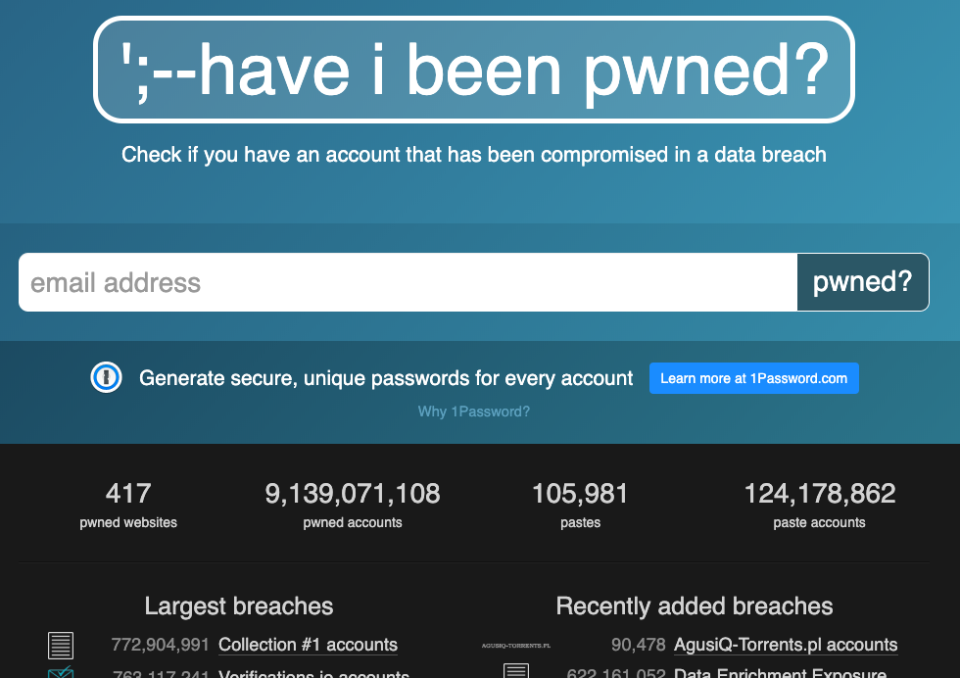How to check whether you've been hacked

Privacy breaches are happening online on a daily basis. And if your personal information is available publicly, criminals can use it to take over your identity to execute all sorts of crimes.
But how do you know if your data has been exposed?
Fortunately, there is a webpage named "Have I been pwned?" where this question can be answered.
Australian tech security guru Troy Hunt created the site in 2013, which allows anyone to enter an email address to check if it's mentioned in any data breaches.
Hunt has linked the search engine to various data leaks over the years and continues to add new data breaches as they occur, which is unfortunately all too often.
When the page started it could search through 154 million accounts from five breaches. Now there are more than 9.1 billion accounts.
The UK and Australian governments now use the HIBP page to check if any of their email addresses have been leaked in a data breach.

Hunt created the page because he noticed the staggering number of people having their data breached repeatedly with the same password.
"As fallible humans, we reuse passwords. We’ve all done it at one time or another," he said on a blog post in 2017.
"Most people are just out there YOLO’ing away with the same password or three across all their things."
If you share the same password for multiple purposes, once that password is in someone else's hands they have access to many resources, rather than just one.
Hunt's tip to avoid getting hacked is to create strong and unique passwords – and to use password manager software to avoid having to remember them all.
Make your money work with Yahoo Finance’s daily newsletter. Sign up here and stay on top of the latest money, news and tech news.

 Yahoo Finance
Yahoo Finance 